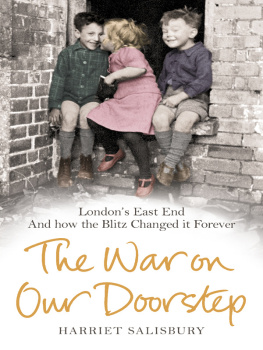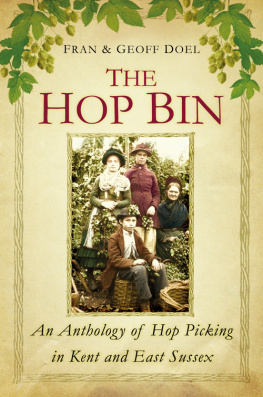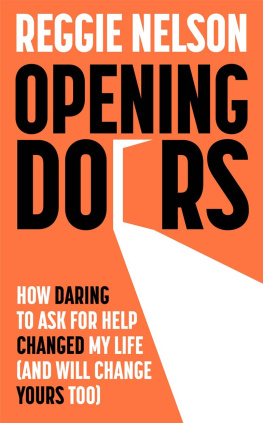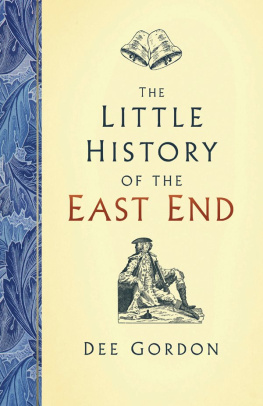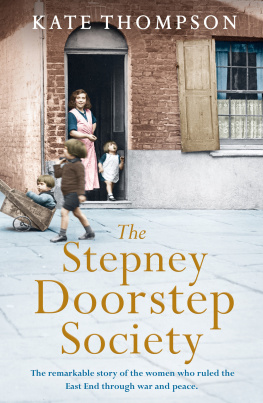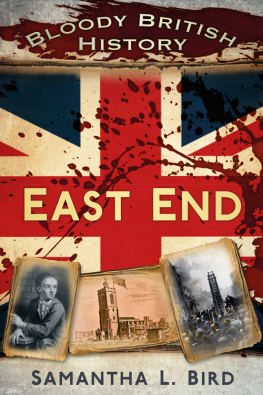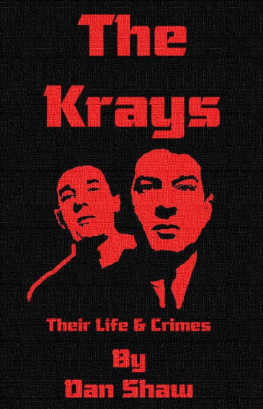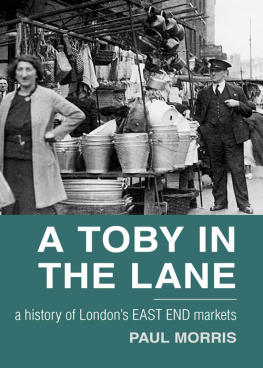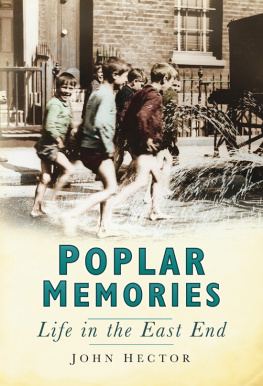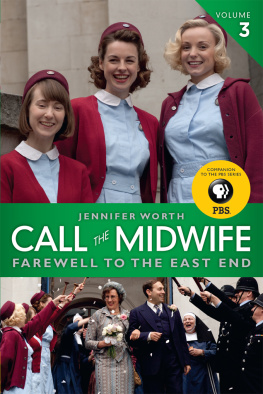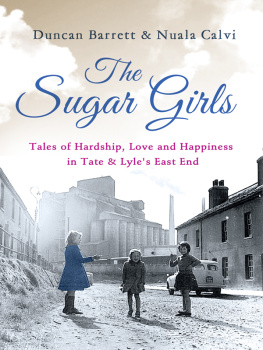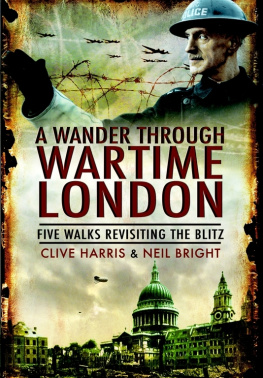Contents
About the Author
Harriet Salisbury has been a writer and editor for twenty years and has a special interest in the history of East London. She lives in Hackney. The War on Our Doorstep is her first book.
The Museum of London oral history collection contains more than 5,000 hours of recorded life story interviews with a wide variety of people who have lived and worked in London and who talk about their lives and everyday experiences.
About the Book
Londons East Enders are known for being a tough, humorous and lively lot. In the early 20th century, families crowded into single rooms, children played on the streets and neighbours doors were never locked in case you needed an escape route from the police
The Second World War changed everything. During the Blitz, men set off for work never to return and rows of houses were reduced to rubble overnight. Yet the East Enders ability to keep calm and carry on cemented their reputation for cheerful resilience.
They say Hitler killed off the bugs but, along with the slums, the Blitz destroyed a way of life. After the war families were scattered some to estates on the edge of London, others to isolated high-rise blocks. The old East End communities were gone forever.
Told by the residents themselves, The War on Our Doorstep is an eye-opening, moving and laugh-out-loud depiction of what it means to be an East Ender.
To my mother, Elisabeth Salisbury,
who was born within the sound of Bow Bells
Foreword
The word history is a lot more complicated than it first seems to be and this book takes us right to the heart of the maze. When I was at school and university in the 1950s and 60s, History was owned by historians. These were for the most part men who had attended private schools and Oxford or Cambridge University and they tended to write either grand narratives about long eras France in the nineteenth century or the like or biographies of major figures: prime ministers, dictators, generals.
But out of sight, other histories were being written. A few people were painstakingly putting together histories of men and women they called labourers and trying to tell the story of crafts, trades, associations and unions. Some were documenting accounts of their particular immigrant groups. From all walks of life, people began studying their streets, villages, towns and localities and wrote pamphlets and booklets and attended local meetings to talk about it.
Eventually, these tendencies personal, local, from below and migrant histories were being seen as a movement and this hooked up with new ways of describing ourselves in the present. Key to it all were testimonies written and oral by people in the positions in society that had mostly been written about and not by. This is the territory on which memoirs and what has come to be called life-writing meets diaries, recorded interviews, radio and TV documentaries, which allow ordinary people to speak, and archives of peoples accounts of events and experience.
Over the years, the Museum of London began collecting various collections of testimonies that were relevant to London. Created from the Museums archives, this book comes directly out of this oral history movement and touches on all these strands about ordinary people labourers, unions, migration, women, ordinary families. The War on Our Doorstep immediately leads us to the heart of that great historical question: what was it like? To be clear, Im not someone who thinks that the old-style history I was brought up with is necessarily redundant. For us to understand why and how things happened, we need grand narratives, we need accounts of how wars were made, how wealth was made and lost, how this or that group of people became powerful, how people were organised to make and distribute the things we need and use. That said, if we want to know how these things felt, just as you and I might feel it, if we want to understand the motives and desires of people, then we had better listen to the things that people say about these matters. Otherwise the danger is that you end up retelling myths, the received legends as often made up about other people as those made up by the people themselves.
I was on the receiving end of some of these. My parents were East Enders; my mother was born in 1919 in Stepney and lived there till she was eighteen. My father was also born in 1919 but in the USA, came to Whitechapel when he was two years old and having met my mother, also stayed till he was eighteen. All their sixteen great-grandparents were born in Poland, Russia or the Austro-Hungarian Empire and either they or their children were the first generation migrants into the East End of this book. As a child, growing up in the suburbs of north-west London, for me the East End was a place of the past, talked about again and again, sometimes lovingly, sometimes laced with danger, fear and on occasions dislike. It was a place where my parents had met and grown to love each other. It was also a place where they had engaged in a movement to defend their right to live there, to fight for better housing, jobs for all and ultimately a better society for all. As part of that, they had been offered and used the free education and free cultural facilities of local libraries, museums and historic sites which enabled them to go on to higher education and work in a profession.
They both spent a good deal of time thinking, talking and writing about how their own home cultures of Judaism and secular eastern European Jewishness intermingled in the East End with other migrants Caribbean, Indian; older generations of migrants, Irish, in particular and whether there was something specifically London or Cockney and how all this related to people many of whom they admired who were seen as trying to do good: doctors, teachers, priests, preachers, rabbis, politicians and the like.
Mysteriously for me as a child, this East End was in an obvious sense invisible because it was in that other country called the past. But it was also invisible in a less obvious sense, on the rare occasions we visited it, because it wasnt there! That was of course just a perception moulded by my parents own highly subjective view of their East End. They meant that their East End wasnt there. A new East End was and always is being made. And for over thirty years, I lived along its northern frontiers in Hackney and have spent many hours working in schools there as a visiting writer.
What is particularly moving and important about this book in addition to its way of telling history is how its voices embrace, challenge and enrich my sense of the East End: both in its mythic form which Id learnt from my parents accounts but also in my life and work in and around the area.
So, we all have pictures in our heads of what things were like in the past and education seems to gather about it a rosy glow of children in rows listening obediently while stern but fair teachers taught everyone to read, write and do maths. Gracie Smith says:
I had no schooling, or very little schooling. I didnt have a rough upbringing, I was just the eldest of the family and of course I was expected, if Mother worked, to help my mother. I started work at ten years of age sweeping snow, scrubbing doorsteps, helping Mother out I went out with the barrow, or helped out the winkle man on Sundays.
It doesnt fit the prevailing image of twentieth-century childhood, does it?
Again, the word blitz has come to mean the bombing of London during the Second World War, but held in the collective memory of East Enders is the earlier bombing during the First World War, which included the bombing of an infant school in Poplar. Stan Bryan:
Next page
